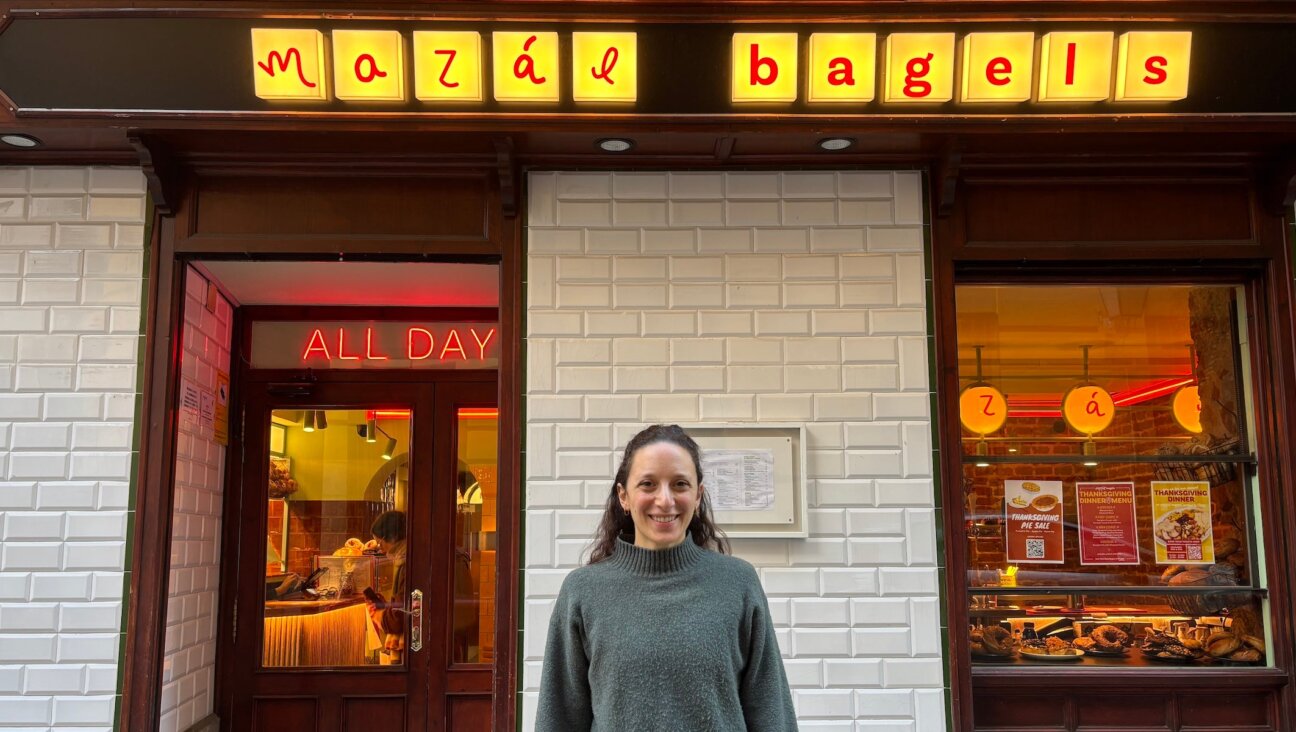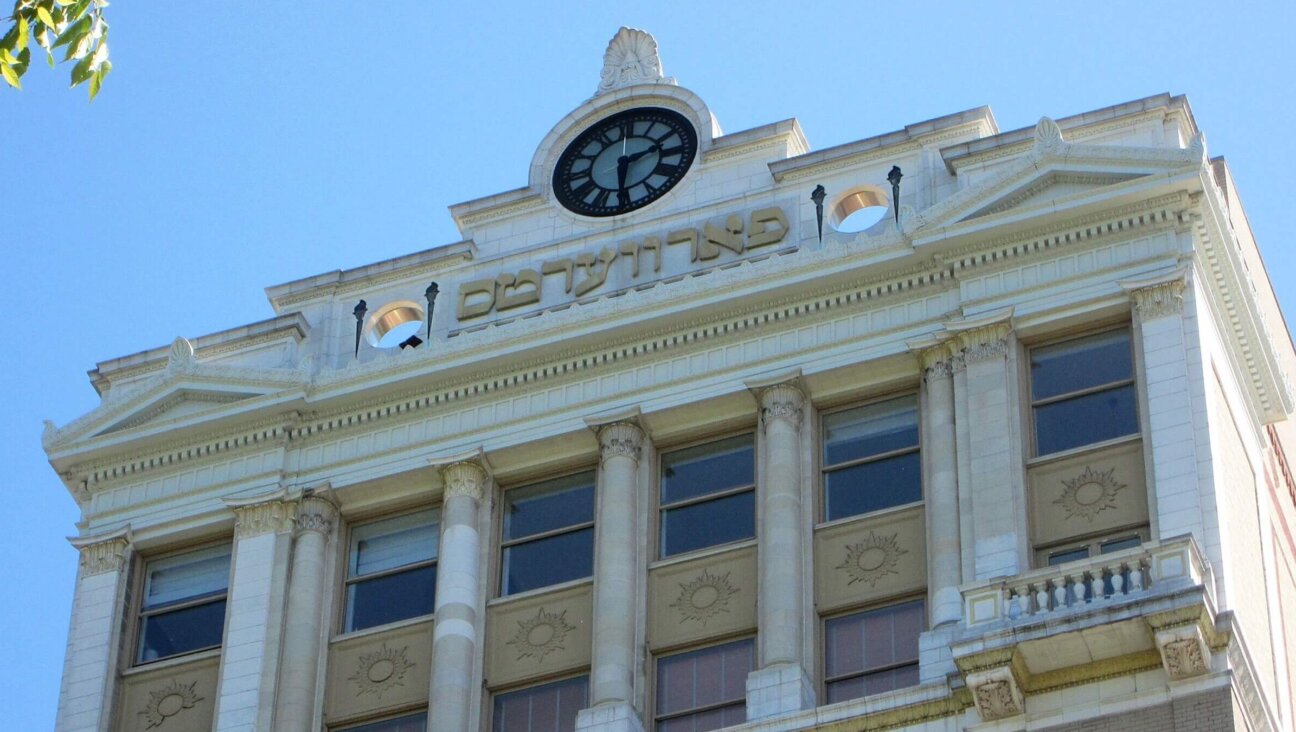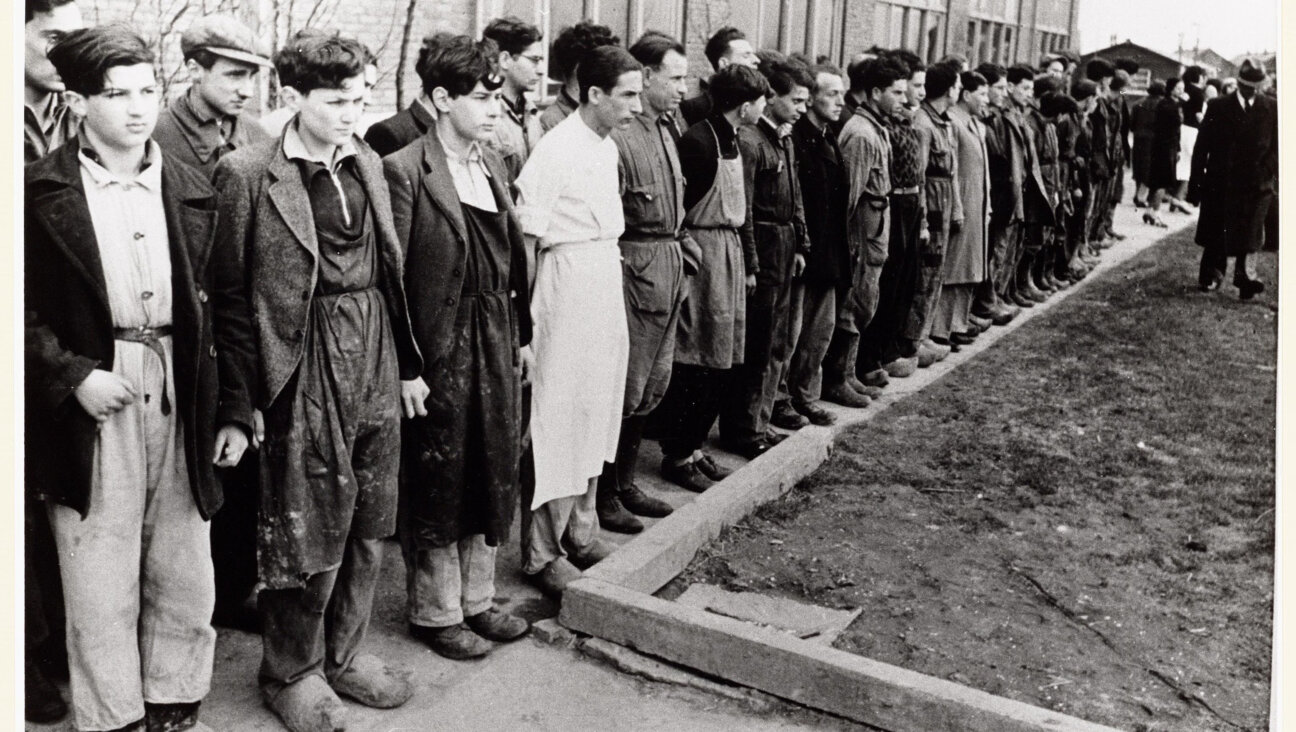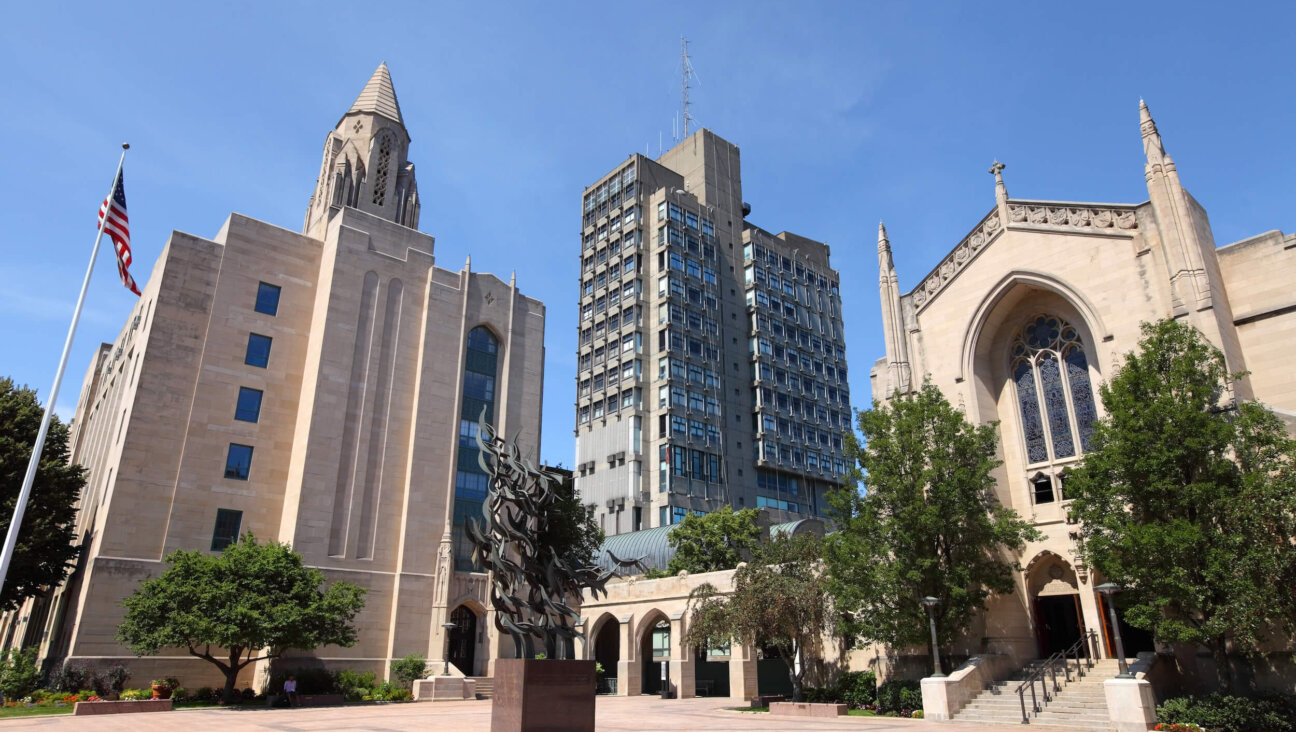Vienna Museum Insists Jewish Owner Willingly Sold Klimt’s Beethoven Frieze for $750K

Graphic by Angelie Zaslavsky
The Viennese museum that houses one of Gustav Klimt’s greatest artworks says it has evidence that its previous Jewish owner sold it to the Austrian state in an amicable transaction, rather than too cheaply under duress.
The Secession museum is defending itself against a claim from some of the heirs of art collector Erich Lederer, who sold the monumental 1902 Beethoven Frieze to the state for $750,000 in 1973.
Lederer’s family, prominent collectors who were friendly with Klimt and fellow artist Egon Schiele, fled to Switzerland and Hungary after Hitler’s Germany annexed Austria in 1938, and their collection was seized by the Nazis.
The frieze was returned to Lederer after the war but, despite decades of trying, he was unable to export the rapidly deteriorating work to Switzerland because of a ban on exports of objects of historic, artistic or cultural significance.
He sold some works to the state in return for export licences for other paintings. But he was never reunited with the 2.15 metre by 34.1 metre (7 foot by 111 foot) frieze, a homage to Beethoven’s Ninth Symphony that was originally painted onto the wall of the Secession for an exhibition, and later kept in storage for decades, in eight pieces.
Last month, a lawyer acting for a Swiss branch of Lederer’s family said heirs were reclaiming the frieze because its sale had been effectively forced at too low a price.
The case is set to test Austria’s laws on restitution of looted art, which it amended in 2009 to include property that was acquired at a discount because of the export ban.
The discovery this month in Munich of a billion-dollar art hoard, much of it believed to have been looted or extorted by the Nazis, has reignited a debate over how Germany and Austria have dealt with restitution claims.
DETAILED DEFENCE
This week, the Secession published a detailed defence of Austria’s ownership of the frieze, including correspondence that it said showed Lederer had agreed freely to sell the work after the personal intervention of Chancellor Bruno Kreisky.
“I thank you … for your friendly lines,” Lederer wrote in 1970 to the newly elected chancellor, according to documents sent to Reuters by the historian Oliver Rathkolb, whose research formed part of the museum’s case.
“May I also thank you for that fact that you have personally taken on the case of the Klimt Frieze, especially as talks over the possible acquisition of the frieze have been going on since the year 1946 – which is 24 years, after all.”
The museum said Lederer had sold the frieze for a price “voluntarily negotiated by him and considered by him to be reasonable”.
Rathkolb, who has written books on Austria’s Nazi legacy, said that although Lederer was “absolutely badly treated, like many other Jewish victims and survivors”, things changed after Kreisky, himself of Jewish origin, became chancellor in 1970.
Rathkolb said the deal to sell the frieze was agreed in 1972 with Austria’s then science minister, Hertha Firnberg, over dinner at Lederer’s home in Geneva, at which Lederer gave Firnberg an original Klimt drawing as a thank-you gift.
Marc Weber, the lawyer for Lederer’s Swiss heirs, said the documents proved nothing, and that Lederer had sold only because he believed there was no chance of getting the frieze out of Austria.
He called the Secession’s argument “truly cynical”.
“The government had previously refused for decades to allow the export. Without signals to the contrary, Lederer, in making his decision to sell, must have assumed that Austria would not change its attitude on this decisive point,” he said.
A commission of art provenance experts will now look into the case and make recommendations to an advisory board on art restitution, probably next year. The final decision will be made by the minister of culture.
















